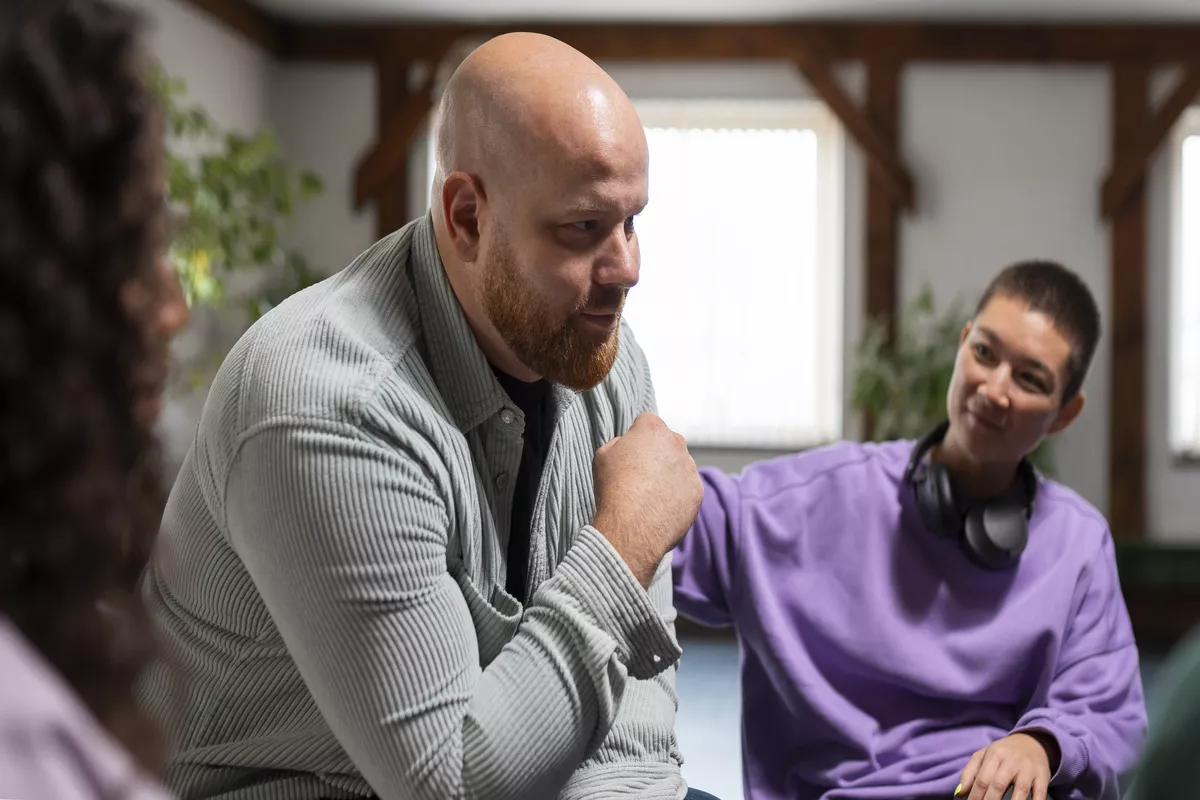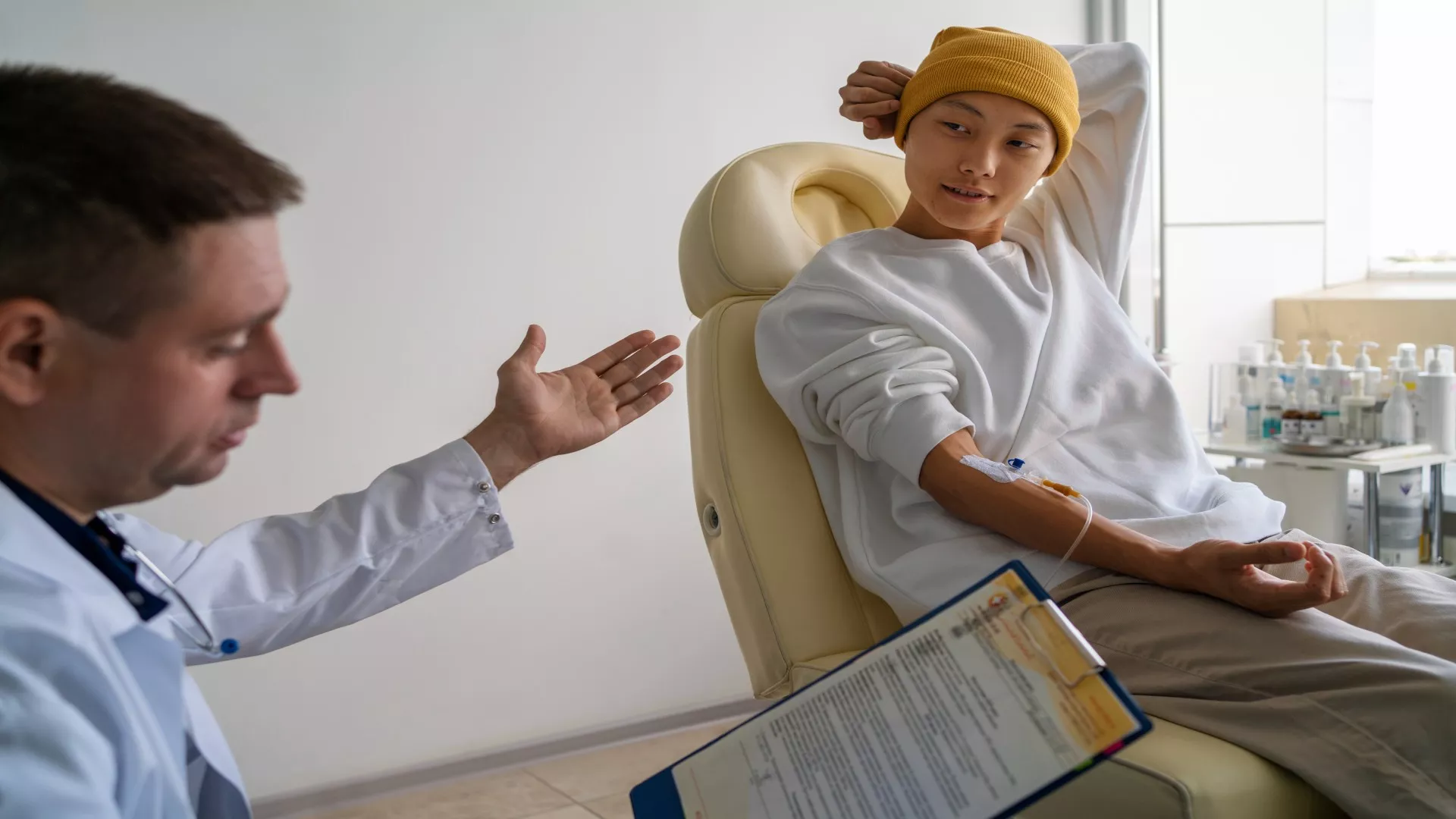Introduction
A cancer diagnosis can be a devastating blow, not just physically but also emotionally. Fear, anxiety, and depression can become overwhelming, even as advancements in medical treatments offer hope. While advanced medical treatments play a vital role in fighting cancer, the mental resilience of patients and their support networks significantly influences recovery outcomes. This blog explores the crucial interplay between mental health and cancer treatment.
The Interconnect Between Mental Health and Cancer
The connection between the mind and body is undeniable. Cancer treatment demands immense physical endurance, but mental health can be the silent force that either strengthens or weakens the fight.
Studies suggest that emotional distress can weaken the immune system, making it harder to fight the disease. Conversely, a positive mental outlook can enhance the body's natural defences and improve treatment adherence.
The link between mental health and physical well-being becomes even clearer when we consider the impact of stress. Stress can elevate cortisol levels, a hormone that helps the body prepare it for stress; however, when it comes to chronic stress, it can suppress the immune system and interfere with the effectiveness of cancer treatments. Chronic stress often manifests as a persistent feeling of overwhelm or pressure. On the other hand, stress management techniques, such as mindfulness and mindfulness-based relaxation techniques, physical activity, and meditation, can help regulate cortisol levels and promote a healthier emotional state.
The mental health impact of a cancer diagnosis often manifests as:
Emotional Impact
Cancer brings a range of emotions that can feel overwhelming at times:
- Anxiety: Uncertainty about treatment outcomes, health, and the well-being of loved ones.
- Depression: Feelings of hopelessness, reduced motivation, and loss of interest in previously enjoyable activities.
- Fear: Concerns about painful treatments, side effects, the possibility of recurrence, and mortality.
- Emotional Overload: Anger, frustration, confusion, loss, and mood swings about how the disease has disrupted personal and family life, leaving many feelings lost or numb.
Practical and Social Challenges
In addition to emotional hurdles, the practical realities of cancer can amplify stress:
- Financial Strain: The high costs of treatments, medications, and support services can weigh heavily on patients and their families, which could add to the distress.
- Isolation: Physical and role limitations, fatigue, and immune vulnerabilities often result in social withdrawal, leaving patients feeling alone and misunderstood.
- Family Dynamics: Cancer doesn’t just affect the individual—it tests the strength of family relationships as loved ones adapt to new roles and responsibilities, often while managing their own fears and emotions.
Spiritual and Existential Struggles
Cancer can also lead to profound spiritual or existential questions, as patients grapple with the deeper meaning of their diagnosis and life itself:
- Searching for Meaning: Many begin to reflect on questions like, “Why me?” or “What legacy will I leave behind?” These thoughts can bring about both distress and opportunities for personal growth.
- Faith and Belief Systems: Some may turn to their faith for strength, while others may feel a crisis of belief as they struggle to reconcile their circumstances.
- Existential Dread: Thoughts of mortality or life’s impermanence can lead to feelings of emptiness or fear. Yet, addressing these concerns can foster a deeper sense of purpose and acceptance.
These emotions and concerns aren’t just psychological—they have physical repercussions. Anxiety can disrupt sleep and digestion, while depression can lead to fatigue and weakened immunity. Recognizing this interplay is essential for holistic healing.
The Role of Mental Health in Cancer Recovery
Prioritizing mental health during cancer treatment offers multiple benefits:
1. Better Coping Mechanisms: Psychological support helps patients navigate emotional challenges effectively.
2. Improved Adherence to Treatment: A strong mental outlook motivates patients to follow treatment plans.
3. Reduced Physical Side Effects: Stress management techniques can alleviate pain, nausea, and fatigue.
4. Enhanced Quality of Life: Emotional well-being fosters hope, purpose, and resilience during the cancer journey.
Real-life examples show that patients who address their mental health often experience better recovery outcomes. Combining emotional care with physical treatment creates a comprehensive, patient-centered approach.
Practical Strategies to Improve Mental Health During Cancer Treatment
1. Psychotherapy by a professional: Therapies like supportive psychotherapy or cognitive behavioral therapy (CBT) help patients manage distress, automatic negative thoughts, fear, anxiety, and by offering tools and strategies tailored to their emotional needs.
2. Mindfulness based Practices and meditation: These practices can reduce stress, improve emotional regulation, increase awareness, and help one get a better night's sleep.
3. Journaling & Self-Expression: Writing and using creative outlets can help you release emotions, foster self-awareness, and find a way to process your cancer journey.
4. Staying Physically Active: Improving circulation, reducing fatigue, elevating mood, and optimizing sleep can all be achieved by engaging in light exercise.
5. Support Groups: Being able to connect with people facing similar challenges can provide emotional relief, practical suggestions/tips, as well as a sense of belonging to a community.
The Role of Family, Friends, and Support Systems
There is no doubt that a strong support network plays a significant role in the emotional journey of cancer patients. Family and friends can offer both emotional and practical support by:
- The ability to listen empathetically without judging what is being said.
- Assist with day-to-day tasks and appointments related to treatment.
- To overcome fears and meet needs, it is important to encourage open communication.
Caregivers, too, must prioritize their mental health. Seeking counselling, psychotherapy or joining caregiver support groups can help them manage burnout, compassion fatigue and provide better support to loved ones.
Coping Mechanisms for Caregivers
Taking care of a loved one with cancer can be emotionally tiring. To avoid burnout:
- Set Boundaries: Recognize personal limits and take breaks when needed.
- Seek Support: Join caregiver networks or therapy groups for guidance.
- Practice Self-Care: Engage in hobbies, exercise, and mindfulness to rejuvenate.
Caregivers’ well-being is crucial to providing effective care.
Conclusion
Caring for mental health is just as essential as physical treatment in the fight against cancer. Prioritizing emotional well-being alongside medical treatment builds resilience, supports recovery, and enhances quality of life.
Do not lose hope if you or a loved one are battling cancer, remember there are people out there for your emotional support. By prioritizing mental health, you can transform the cancer journey into that of hope, strength, and empowerment.










